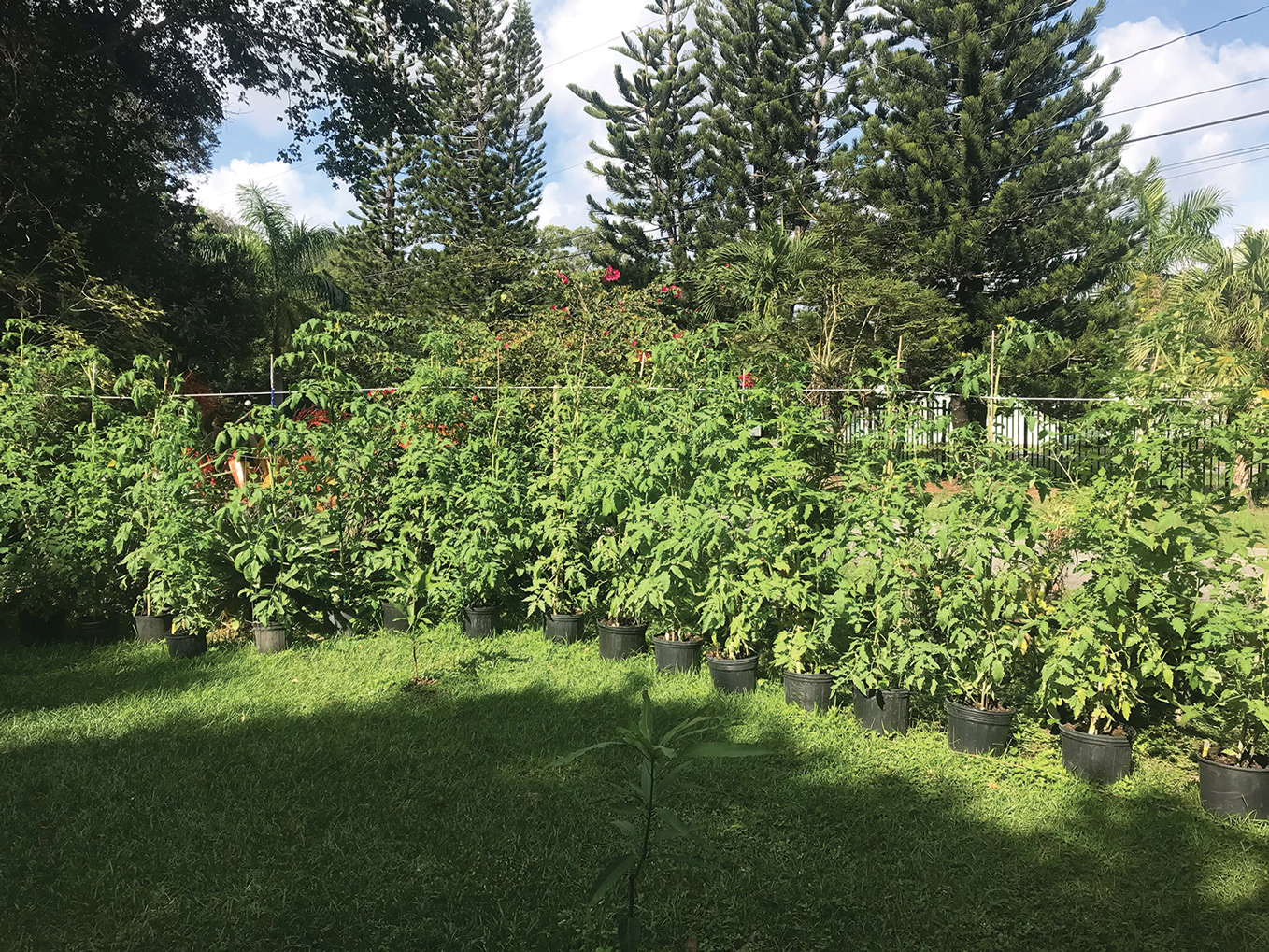Vegetable Gardening in the Last Third of Your Life
All is good in terms of health and family, and now I know precisely what I want to grow in the garden and how to achieve a good result.
It’s easy to fall back into worry and complaint. No doubt, each year is more unpredictable. There are more numerous and ingenious pests, and less strength and stamina in my hands and back. But the climate has always been changing, there have always been plenty of unwanted animals and insects hell-bent on hijacking the harvest, and we humans have always gotten older. Fortunately, we have our winter garden to mitigate the worry and satiate the anxiety.
I began vegetable gardening to teach my children and provide a healthy and diverse array of vegetables for my kitchen. I came to vegetable gardening in my late twenties, drawing upon the example of my father and my kin in Missouri and Illinois. There were many challenging years of trial and error. Unlike the Midwest, South Florida has never been an easy place to garden given our poor soils, abundant pests and counter-intuitive seasons. But with a bit of persistence and adaptation, I grew my garden and began to teach others within my home and in the community. The entire family now gardens and my wife has taken gardening to a new level, bringing sustainable, biorational South Florida vegetable gardening to an entire generation of high school students.
Joys of Gardening
Each year, I still garden. We get seed catalogs from the large commercial companies, seed exchanges, organic producers and hobbyist groups across the U.S. and beyond. These catalogs and blogs provide ideas and seeds for planting in our own garden. There’s an overwhelming sense of fulfillment and hope in the annual procurement of new seed, as each packet of heirloom tomato seeds or open-pollinated lettuce or kale has its own story to tell and role to play. Someone cultivated these plants throughout their entire life and perhaps across generations. They did this not for financial gain, but because they were called to serve. Seed savers and heirloom protectors have an innate need to take care of these plant lineages, these horticultural treasures. Growing these vegetables in one’s garden is an honor and obligation that transcends the ordinary. The gardener has a role in the greatest play of all: mankind and food production.
With age comes greater focus on what you really want to grow. I like to grow tomatoes, lettuce, tropical pumpkins, onions and other leafy greens. I’ve learned how to grow these crops well over the years, adapted to the changing temperatures and rainfall patterns, and it has been immensely fulfilling. But gardening in South Florida is not easy. You must buy or build your own soil through composting and mulching, providing structure with charcoal or crushed clay shards (terra preta). Such a soil has a resilience that can withstand the powerful compaction of our thunderous downpours. This is a lifelong pursuit that takes patience and a steady hand. The soil needs to be maintained in a raised bed to contend with erosion, best fenced off to dissuade unwanted kids, dogs, cats, iguanas and peacocks. Cutworms and white grubs need control and chickens are the key for this. Biorational products – pesticides or herbicides that cause relatively little damage to the environment – are the best options for pests and diseases. Cover crops should be used to fallow the garden during the rainy season to build soil and reduce weeds.
Sweat Equity
These may seem like onerous tasks that no one has time for in the modern world. But if you want to know where you are going, you must first know where you have been. Hoeing a garden will make you sweaty and get your feet and hands dirty. But after a short rest and a glass of water, you will have no anxiety, a clear head and a healthy heart. Gardening work is plant husbandry and horticulture at its finest. When you toil to build the soil to maintain its diversity and fertility, there is a connection impossible to attain in any other way. “Getting your hands dirty” will become a mantra, not a snide quip.
When you harvest your sweet and perfectly acid-balanced tomatoes, there is no better feeling in the world. If you take the time and grow your own, you will be successful in cultivating your own health, well-being and healthy, sophisticated palate. Don’t be afraid to experiment! Buy lots of seeds and plant them. Give everything a try. Many will not be a success, but do not be dissuaded. Visit hardware stores and garden centers to buy new vegetables. Go to the farmers markets, sit with the people, talk plants and gardens. Leave the phone in your pocket and take home the seeds and the stories for your garden. I know what I like, but I am always open to some new carrot – or a new story, for that matter.
At this writing, it is December, and the tomatoes are setting. The lettuce, chard, green beans and peas are sprouting. I do my rounds each morning to bear witness to the re-birth of the vegetable season. The endless potential of the vegetable garden serves as the proverbial mechanical rabbit to the greyhound. I don’t really want to catch the rabbit, for then what is there to chase? The elusive diversity of the vegetable garden keeps me in the race, moving forward and not looking back.





